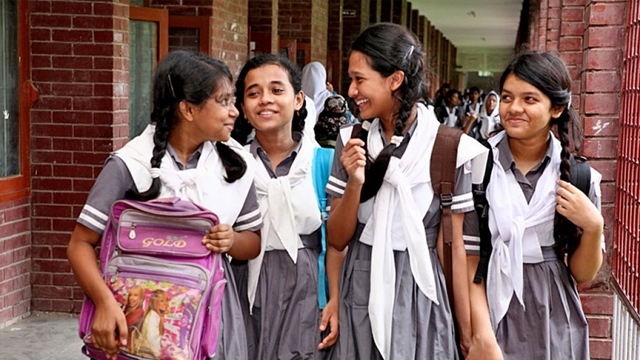SAM
Published:2018-06-04 17:35:49 BdST
Secondary EducationMassive spending planned for skill development
FT ONLINE
The government is going to take up a massive $17.2 billion or Tk 137,666 crore programme for secondary education for the first time under the revenue budget in the next fiscal year.
The "Secondary Education Development Programme" will be the largest-ever project for the country's education which would aim to transform the sector by improving quality and developing the students' employability skills.
The programme is a test case of a unified budget where development and non-development budget would be merged.
The five-year programme would be financed mainly by the government. The World Bank, the Asian Development Bank and other development partners would also provide financial and technical support, said an education ministry official wishing not to be named.
Both the WB and ADB have agreed to provide $500 million and $225 million respectively for the programme, the official said, adding, the British Council, Unesco, Unicef, DFID and UNFPA would provide technical support.
The development partners have committed to providing a fund which would directly come to the Finance Division's account.
The programme would cover grades VI to XII, annually supporting more than 1.2 crore students and 300,000 teachers of more than 20,000 schools, 10,000 madrasas and 1,000 school-based vocational/technical institutions across the country, insiders said.
Of the $17.2 billion, around $3.5 billion would be capital expenditures like new investment or expansion of school, college and madrasa buildings, procuring ICT equipment and other educational materials, the insiders said.
The rest is operational cost, they added.
The development partners and the finance ministers have been advocating for more than two decades merging the development and revenue budget for more efficient use of the resources. Finance Minister AMA Muhith has also been stressing a unified budget.
The education ministry last month sent the project proposal to the finance ministry to include it in the next budget.
Officials of both the finance and the education ministry said the project would not require approval of the Ecnec. The finance ministry would approve the programme and the education ministry would implement it.
The secondary education is fragmented in several projects. As many as 23 projects are now being implemented in this sector. Of the 23, four are being financed by the donor agencies, according to project documents.
"For development of the social sector, taking up an integrated project rather than separate ones can yield effective and sustainable results," says a project document.
If the proposed programme gets the nod, all other projects will come under it, the document adds.
The reform areas that the programme proposes include salary subsidies to the teachers of non-government schools in the form of monthly pay order (MPO), teacher rationalisation and performance management, institutionalisation of learning assessments, curriculum and examinations, adolescent girls' health and empowerment and transition of class VI-VIII to primary education.
The proposed programme would have three priority result areas -- first one being "Enhanced Quality and Relevance of Secondary Education", according to the project documents.
Under the first area, productivity of secondary graduates would be enhanced by developing their cognitive and technical skills so that they could succeed in the job sector.
Curriculum would be revised as per the demand of the labour market and teachers' quality and capacity would also be enhanced.
Besides, the teaching-learning method in Bangla, English, mathematics, science and ICT would be developed and a new examination system would be adopted to achieve improved classroom assessment and national learning assessment.
The second result area "Improved Access and Retention" is primarily aimed at ensuring equitable access to secondary education and improving retention rate.
Under this area, infrastructure of the education institutions would be developed.
The programme would give special attention to adolescent girls and address the key issues causing their dropouts. Supplementary stipends would be provided and toilet and sanitation facilities would be ensured.
Under the third result area "Strengthened Governance, Management, and Planning", the education ministry would put in place a fully functional decentralised secondary education management system in all zones, districts, upazilas, and schools for planning, budgeting and service delivery.
Accountability would be ensured in the school managing system. A better financial management would be developed and transparency in the purchase activities would be ensured under the third result area, the documents say.
On implementation strategy, the project documents say the education ministry will formulate schemes with permissions from the Finance Division to implement various important sub-components of the programme.
Unauthorized use or reproduction of The Finance Today content for commercial purposes is strictly prohibited.


